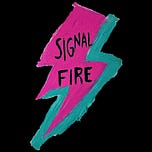*Trigger Warning: If you’re offended by swear words, maybe steer clear of this one, as we’re gonna be diving into them today. Pardon my French, here we go.*
Well I’ll be fucking shit ass damned, we humans, so oblivious to the power we wield. So convinced we’re helpless, powerless against it all, never realizing just how much weight we actually do carry, how much strength in our bones, in our thoughts, and my goodness, in our words. We’re gonna be talking about words today, the power of them, the power we give them, and about language. More specifically, as the delightful intro to this paragraph demonstrated, we’re going to be talking about the bad words, the swears, the curses, the cusses, the four-letter beauties that have come to be so polarized, and so absolutely humorlessly versatile.
The other day, I got into a debate about curse words, about how the words themselves hold no power, it’s only the power we’ve assigned them that does. That any word, any other four letter word, could have come to be a dirty word if we’d allowed it. I could say to you right now, “Plum You” and if the right set of circumstances at the right times would have occurred, you’d be offended, and I’d be the offender. What a thing. This debate rose in me a curiosity, as to why the most common words we associate with a certain degree of nastiness have grown into these nefarious roles. So, as my curiosity demands research, I did precisely that. I wanna dive into the origin stories of a few different curse words that we all know and love (or hate) so well, and I want to figure out the why behind why they hold so much weight. Let’s go.
First, the big dog, the ultimate polarizer, the head-turner. Fuck. Turns out, this beauty has a lot of rumors about why it is what it is, and 99% of them are wrong. No it doesn’t mean Fornication Under Consent of King. Sorry. It actually comes from the early 16th Century, and from the Germanic word that meant “to strike,” or, how we would think of it as to punch, or hit. How it came to mean sex has some people thinking they know the truth too, as in old, old Dutch some said it meant “To breed,” but who knows. What I do know is, like all colloquialisms, it was used more in speech than in writing, so it’s really tricky to nail down when it transitioned into the meaning we currently give it. What does it say of us that our most offensive words most often have to do with body parts or with sexual relations, rather than violence? Weird.
Next up, the favorite of many, including my own Mom (sorry Mom), the beloved Shit. Where, oh where, did this come from? Glad you asked. This beauty comes from the Old English word, scitte, which meant diarrhea, and old Germanic and Dutch also had similar phrases. They all meant To Poop, and come from root words that actually mean “to separate” or “Cut off.” Gross. Weirdly, Shit never had vulgar connotations until much, much later. We gave it the power, decided it was nasty, and stuck with it. Maybe it’s time to “separate” or “cut off” that silliness?
What of bitch? Does it truly mean a female dog? Yes. From the Old English bicce, it does, and always has. Oddly, this word has always carried with it negative connotations, as was used as an insult all the way back to the 15th century. I wonder why it was only a female dog that was the insult, not a creature more typically associated with being unclean or unworthy. Why not a female rat? Why not a mosquito? Strange, we humans.
Another common one, asshole. One we all know and love and probably say mostly when driving in traffic. Where did this get its start? Glad you asked. Trace it back and it came from Arsehole, in Old English, which in turn came from earsðerl, a fun combination of the Latin words for Anus, and for Hole. It quite literally means what it says, and it has never deviated. Clearly, the insult came as there’s quite literally not a spot on the human body that is more associated with waste, and with being unclean, than the ol’ brown eye. It stuck.
I could keep going on this thread for hours, and have a great time doing so, but you get the point by now. What I wanted to truly underline more than anything else, is the idea that cursing, swearing, they hold such different meaning for such different people, and so much of that is just the timing and the decision to assign that aforementioned power. Take the dreaded “C” word, which I won’t say here because I’ve learned people are very touchy about this word. In Scotland and Ireland and much of the UK, that word has a drastically different meaning, used almost as a term of endearment, whilst in the USA, it is probably the most offensive thing you can utter. How silly. I guess I have a very different belief system when it comes to these “bad words,” and it’s this:
I’d rather spend my energy to fight real fights, not semantics, not invented profanity. Saying this, I will absolutely throw down for racial slurs, I have a very, very, short fuse when it comes to racial slurs, and hearing them is an instant trigger to very pointed, very loud, very real reaction. Trust me, it’s not pretty if someone throws one of these around in my presence. Never will be. Sometimes, words do have power that comes with a very deep, very painful history, and I believe, counter to my argument to the otherwise, that words like those fall into that category. For all the others, for the shits, the damns, the hells, the craps, and yeah, even the fucks, I think we have bigger fish to fry, and we should spend our energies doing just that.
Many do not agree, and that’s ok. My Mom is one of these, despite her love for the S word. I think kindness is doing our best to, at times, honor that sensitivity when we’re around those that are upset by it, but in truth, I’ll always be confused and find it all a bit odd.
Whatever you think, wherever you stand, let me know, and let me know which words you find most, and least offensive in the arsenal of all things CUSS. I’m curious here, and truly want to know.
We give them power,
the words and how we use them.
We decide their worth.














